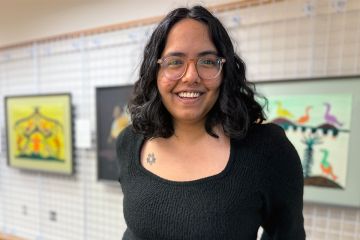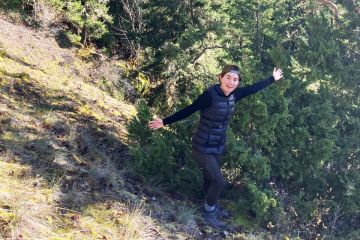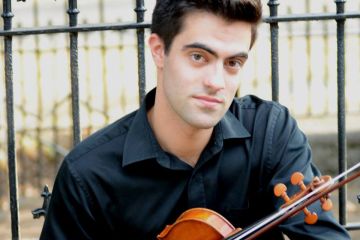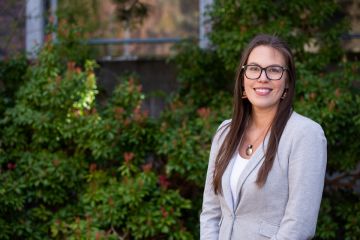Mapping his own path forward
- Anne MacLaurin

A lifelong love of maps led Michael Branion-Calles to the master’s degree he receives this month in geography. But his path was not straightforward—it started in English.
“I began my undergrad degree at UVic in English,” says Branion-Calles, “but once I took an elective geography class I quickly changed my degree path.” He says his appreciation for maps goes back to his childhood and as a kid he always liked maps—an affection that eventually pointed him to the spatial pattern analysis and research (SPAR) lab in the geography department.
“I really enjoyed the intro geographic information system course and applying practical skills to solve problems was a lot of fun,” says Branion-Calles. It was so much fun that he finished his undergrad degree in geography and jumped right into grad studies with geography professor, Trisalyn Nelson, a spatial pattern analysis expert.
“The best thing about the geography program and the geomatics stream is that the technical skills you can gain and the methods you learn are very broadly applicable to a wide range of different areas of research, and, at UVic we have excellent instructors,” says Branion-Calles. “To do GIS work you need a lot of patience, skill with computers, and a high degree of attention to detail,” he adds.
During his master’s thesis research Branion-Calles applied these skills as he worked with the BC Centre for Disease Control (BCCDC) on a project involving radon, a carcinogenic and radioactive gas. Radon is odorless, tasteless and found naturally in the environment—produced by the decay of uranium found in soil, rock, water. Branion-Calles developed a novel method of mapping indoor radon risks by creating a model for the entire province of BC. Since radon can travel in the open atmosphere, high concentrations can accumulate in homes with longterm exposure—causing lung cancer, and an increased risk especially for those who smoke.
“I worked with a senior scientist in Environmental Health Services at BCCDC who helped guide my initial research questions and shared invaluable advice and expertise on the interpretation of my results,” says Branion-Calles.”
When he is not studying, Branion-Calles spends quality time with friends, family and his significant other. “My friends and family keep me sane,” he says.
Despite loving UVic and Victoria, Branion-Calles has moved to the mainland to pursue a PhD at SFU in Health Sciences. Among other research areas, he will be working on modelling cycling safety in Vancouver in partnership with UVic BikeMaps.org.
Asked about what advice he would give first year students, Branion-Calles, says “improve your time management skills. In my experience, as my time management skills increased, my grades improved and my stress levels decreased,” continues Branion-Calles. “The ability to prioritize tasks and work efficiently can help prevent a lot of unnecessary stress and actually give you the ability to make time to interact with those important to you in the midst of a busy semester.”
Photos
In this story
Keywords: convocation, student life, graduation, alumni, mapping





